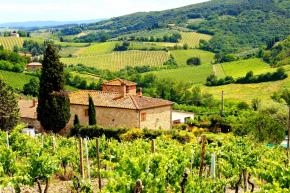Italy, the Southern European boot-shaped country offers a wide array of landscapes, cities, and climes. The country stretches from the Alps mountain range in the north all the way south to the Mediterranean island of Sicily, passing through the northeastern island city of Venice, over the Apennine Mountains to the southwestern city of Naples, itself in the shadows of the Mount Vesuvius volcano and the neighbouring Roman city of Pompeii.

As a result of this great diversity and wealth of attractions, the country is a huge lure to foreign visitors, and is in fact the highest tourism earning country in the world. In terms of expatriates choosing Italy as their new home, around 7.5% of the 60 million people living in the country are foreign nationals. Of those, 54% come from other European countries, 22% from Africa, 16% from Asia, and 8% from North and South America.
The Italian Economy
The fifth largest economy in Europe and ninth largest in the world, the country is often an important player in both global and European politics – it was a founding member of NATO, and one of the ‘Inner Six’ countries of the European Community, the body that later became known as the EU. Further, for tourists and expatriates, its membership of the eurozone and Schengen Area means visa free travel without needing to change currency around much of Europe.
As a market economy with a high GDP per capita, Italy is a leading country in world trade and exports. The country’s manufacturing sector is very much focussed on quality over quantity, allowing the country to remain competitive while other countries around the world undercut due to lower labour costs.
Those planning on moving to Italy should be aware of the large north-south divide in living standards. Average GDP in the north of Italy is around 115-125% of the EU average, while in the south it’s around 70%. As a result, many expatriates seeking career opportunities often move to the north of the country, while those moving to Italy in search of relaxation, retirees for example, usually focus on the warmer, cheaper, and slower-paced south.
